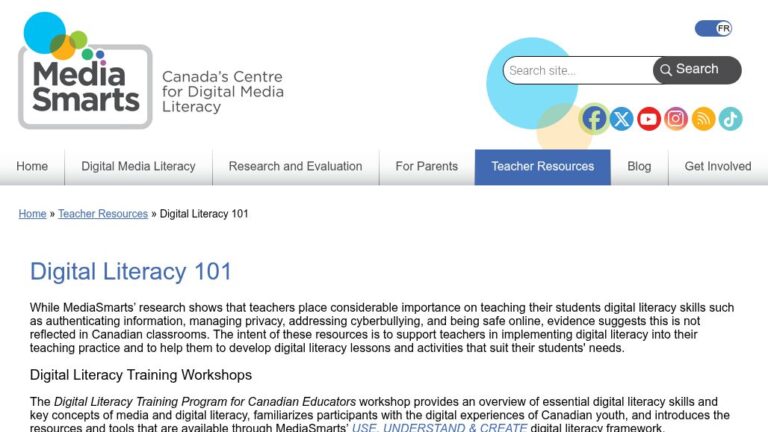While MediaSmarts’ research shows that teachers place considerable importance on teaching their students digital literacy skills such as authenticating information, managing privacy, addressing cyberbullying, and being safe online, evidence suggests this is not reflected in Canadian classrooms. The intent of these resources is to support teachers in implementing digital literacy into their teaching practice and to help them to develop digital literacy lessons and activities that suit their students’ needs.
This Classroom Guide provides practical tools to help K-12 teachers make digital literacy a part of their classroom practice. While the training workshops focus on the five key concepts of digital literacy, this implementation guide looks at the specific skill areas that MediaSmarts has identified as being essential for students to learn by the end of their secondary education: ethics and empathy, privacy and security, community engagement, digital health, consumer awareness, finding and verifying and making and remixing. The guide also addresses common challenges to integrating digital literacy into the classroom, such as limitations on available technology and classroom management concerns, and includes links to relevant MediaSmarts’ and other resources, and apps and tools for creating digital media in your classroom.

